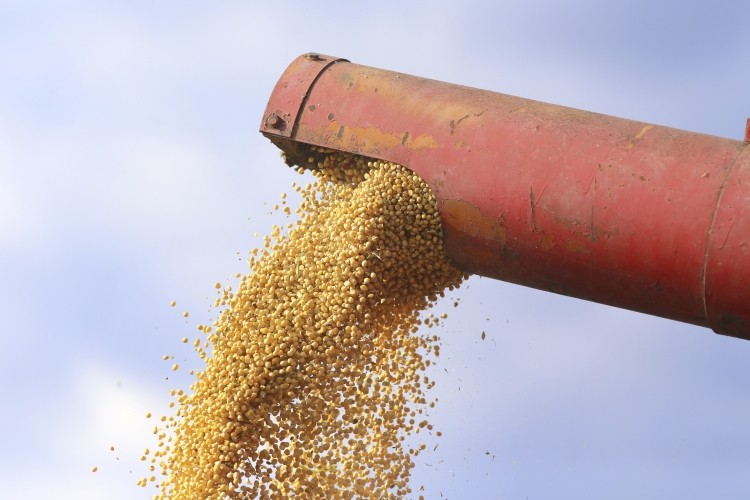'Margins globally were impacted by softer than anticipated meal demand'

The company had a net income of $118m for the period ending September 30, down from $239m for the same period in 2015, it reported.
Total segment adjusted earnings before interest and tax (EBIT) were $199m, down from $367m for the same period the year before, said Andrew Burke, chief financial officer. “As expected Q3 results were negatively impacted by difficult agribusiness environment,” he added.
“Expected improvement in food, sugar and fertilizer came through loud and clear in the third quarter said Soren Schroder, Bunge’s CEO. “However these better performances could only partially offset earning reductions in agribusiness where we felt the impact of historically low levels of farmer pricing in Brazil and weaker than expected soy crush.”
Gross profit for the segments in the third quarter fell from $745m in 2015 to $556m for the quarter that just ended, the company reported. However, net sales rose from about $10.7bn to $11.4bn.
Agribusiness sector
The adjusted EBIT for Bunge’s agribusiness sector fell from $322m in 2015 to $83m in 2016, primarily based on the grains business, said Burke. The adjusted EBIT was $4m, down from $216m in 2015.
“This decline was primarily attributed to low farmer selling in South America due to a combination of the impact of adverse weather condition on the current year crop and the willingness of the Brazilian farmers to sell their 2017 crops,” he said. “Normally the Brazilian farmer sells a portion of the new crop in the third quarter prior to planting to lock in a portion of their margins – but that did not happen this year due to declining crop prices on a local currency basis.”
It is anticipated that the 2017 crop will come to market at some point, but the timing is not clear, he said.
In oilseeds, the adjusted EBIT was $79m, a decline from $106m for the previous year, he said. as low quality, low price wheat replaced corn and soymeal in feed formulations,” he said. “Underlying protein demand remains strong and we expect soybean meal inclusion rates to return to more normal levels as the US harvest starts to come to market.”
M&A activity set to continue
However, the agri-trading company is expecting to see improvements in the fourth quarter and into 2017, said Schroder.
“Acquisitions including new soy crush plants in northern Europe and Grupo Minsa corn milling in Mexico and Walter Rau in Germany are strengthening our co-agribusiness operations, improving our capabilities and extending our global value chains to the doorstep of our global feed ingredient customers,” he said. “A solid fourth quarter is in sight.”
There is an expectation that agribusiness activities will follow a more typical path next year with regards to the feed crop market in South America and use of soymeal in feed formulation, he said.
Capital allocations for the company are expected to remain strong with priorities including continuing mergers and acquisitions, said Burke.
In the fourth quarter, agribusiness results will be influenced by business in North America and Europe, he said. But facilities in the northern hemisphere are expected to run at capacity and provide good margins.
“China is also seeing improved margins,” he said. “Soybean meal demand should increase reflecting the underlying demand for protein as feed formulations normalize during the quarter.”
Industry comparison
Bunge was not alone in reporting a profit dip for the grains or oilseeds segments of its business. ADM also reported a decline in overall operating profit from $684m in 2015 to $650m,
Though Cargill last month said it saw a net income increase to $852m in the first quarter, a period which ended August 31. That agribusiness group added that its animal nutrition and protein segment was a primary contributor to the improved results.
Louis Dreyfus Commodities, another of the big four, global agri-trading companies, had reported a small net increase in profit prior to Cargill’s release. It blamed external factors including growth slowing down in China, the US’ recovery failing to spread and instances of political instability and geopolitical tension.












